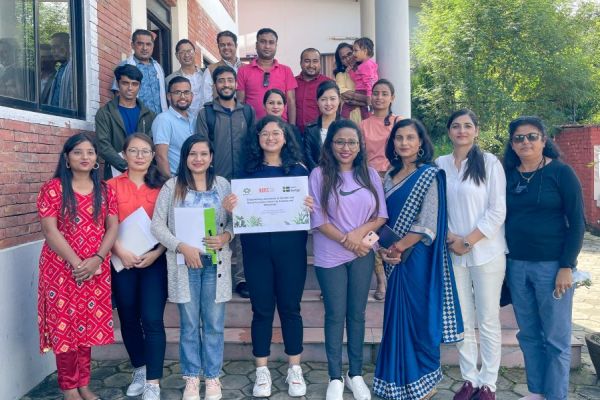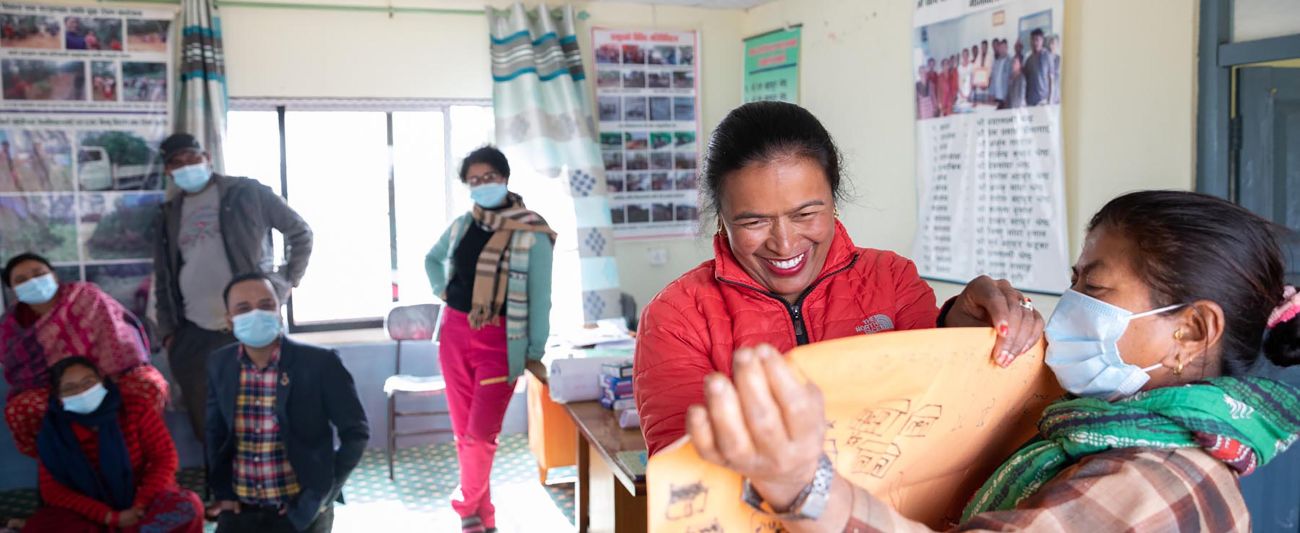
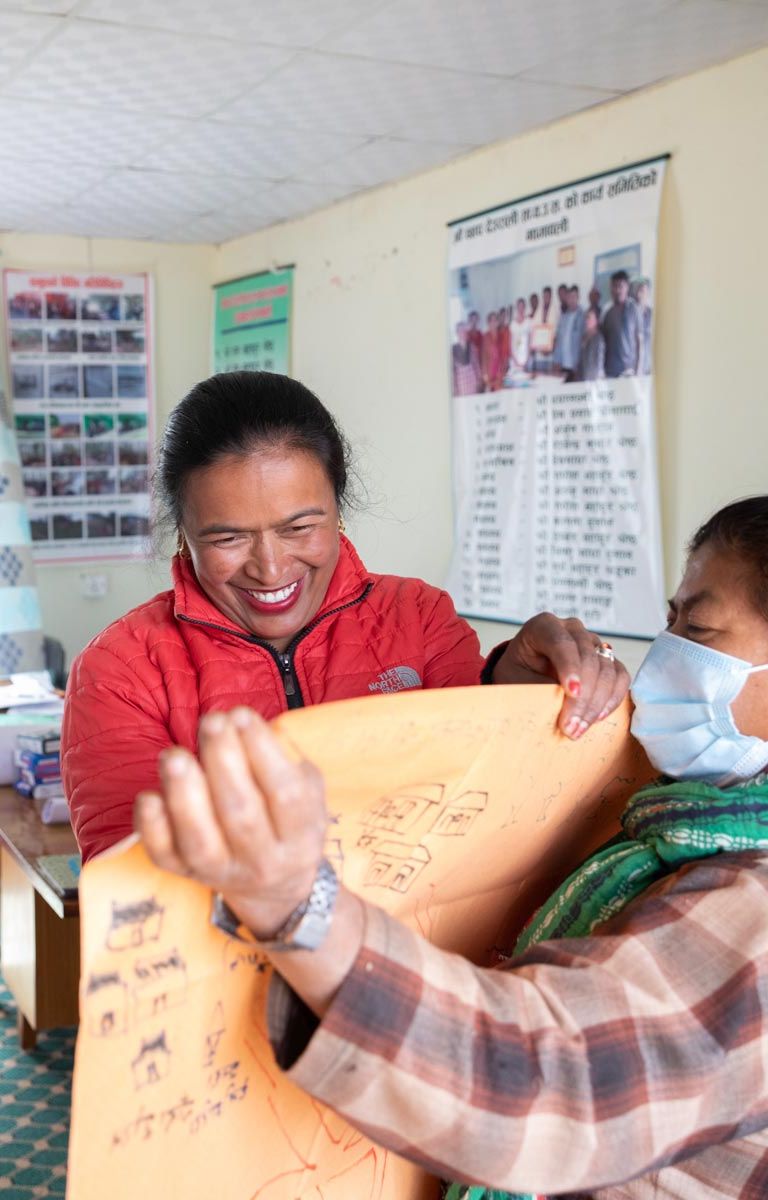
When journalist Madhuri Mahato held a training event on gender issues for women in a rural community in Nepal, the husbands of some of the trainees were upset. Fearful of what talking about women’s rights could mean for them as men, they came to the training hall and confronted Mahato.
Such was their fury that she and the trainees had to be locked inside for their own safety until the police intervened. But later, instead of confronting the men, Mahato organized a meeting with them. Through dialogue, she gained their support.
WAVES was based on the idea that stronger leadership and expertise will improve policymaking and investments in ways that promote gender equality. It will also have an impact on social inclusion more broadly, in the governance, management and use of forest landscapes and their resources.
The women and men WAVES supported came from government agencies, non-governmental organizations, businesses, academia and, in Mahato’s case, the media. In 2022, RECOFTC published an independent evaluation that concluded that WAVES had transformed the abilities of these leaders to think strategically, shift power dynamics and become resilient to challenges.
More tangible impacts arose as each gender leader implemented the action plan they had designed with WAVES support. Some developed gender-inclusive policies or revised teaching curriculums at universities. Others adapted the WAVES approach to create their own training events and materials.
Mahato dealt with the situation by applying techniques she learned through RECOFTC’s Weaving Leadership for Gender Equality (WAVES) program, which ran from March 2019 to September 2022. The program created a network of 31 gender leaders from seven Asian countries. It supported them with training, mentoring and funding as they advocated for equality and led gender-mainstreaming programs in their communities and institutions. And while WAVES has ended, the network it created continues to have important and positive results.
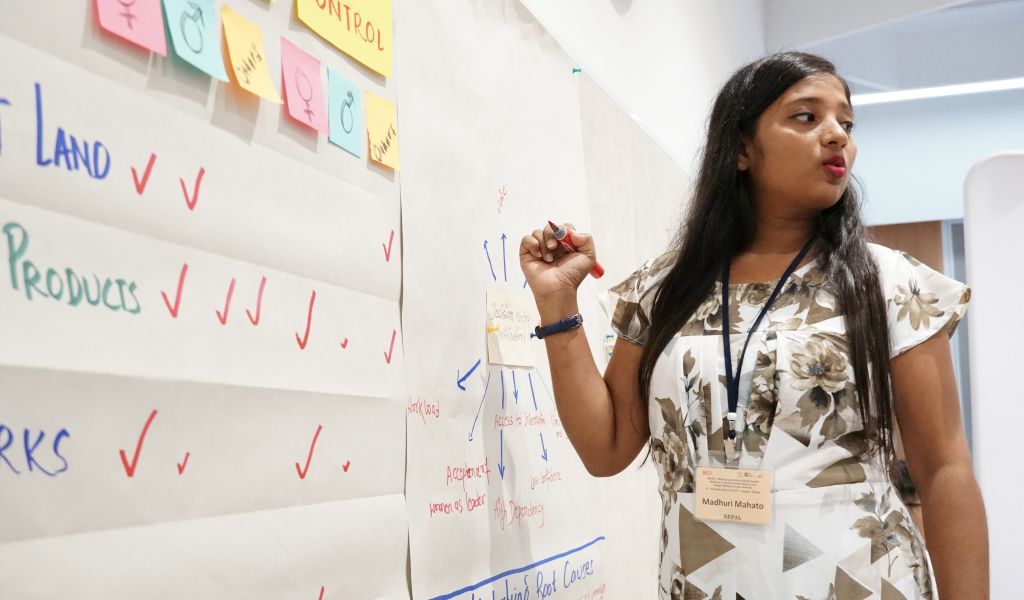
Tangible impacts
Gender inequalities and a lack of attention to gender issues are widespread in the forestry sectors of Asian countries. They are present in government policies, academic institutions, the private sector and communities that depend on forests. They range from bias and discrimination against women, to sexual harassment and gender-based violence.
Indonesian WAVES leader Namira Arsa, from Sulawesi Community Foundation, trained numerous women’s farmer groups in gender equality and relational leadership. She supported local women’s organizations to engage in farming and eco-tourism on customary forest lands.
“I believe my greatest accomplishment is helping local women develop their confidence and leadership skills,” she says.
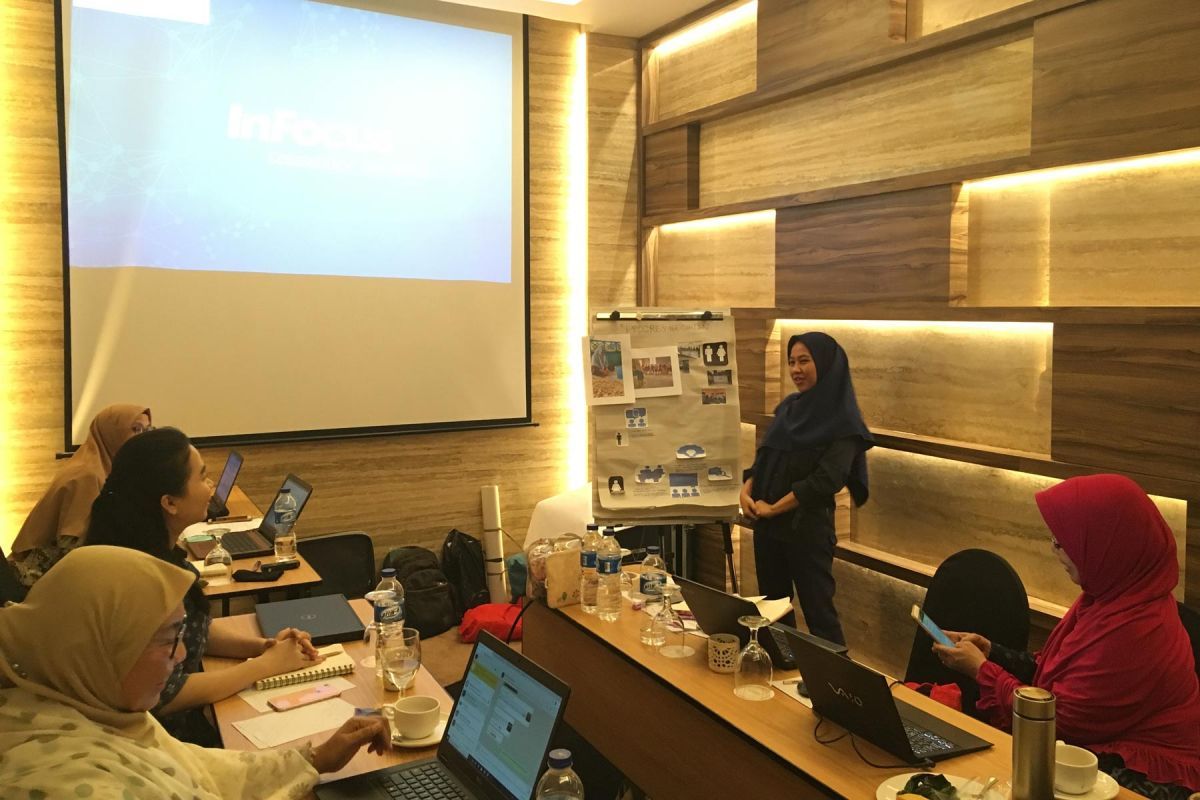
In Lao PDR, WAVES gender leaders held training workshops to promote gender equality in the forestry sector. They conducted surveys that highlighted gender gaps in the Department of Forest Inspection and identified gendered wage inequity in wood-processing companies.
They also provided inputs to the development of Lao PDR’s Forest Strategy to 2030. Their proposals included boosting the number of women in decision-making roles; addressing gender equality in village forestry management plans; ensuring the safety and equality of women in wood processing companies; and including gender-inclusive provisions in timber legality definitions and monitoring systems.
Creating a legacy
The evaluation found that the WAVES leaders have challenged and addressed harmful gender stereotypes. Their activities have normalized and increased institutional support for integrating gender into policies, plans and actions. WAVES also had positive impacts on the gender leaders themselves. They have earned support from their colleagues and are recognized and valued as gender specialists.
“At the start of the WAVES program, I had very little knowledge about gender issues in the workplace,” says Thazin Phyo, a forester working on forest and wildlife conservation in Myanmar. “Now I am considered a gender expert in my professional area.”
Although the WAVES program has ended, the gender leaders continue to advocate for equality and lead gender-equitable programs in their communities and institutions. In Nepal, three WAVES leaders in the Ministry of Environment implemented a leadership acceleration project with support from RECOFTC Nepal. As a result, they transformed a Female Foresters’ Network with only a few members into a 70-strong group of women.
Reetu Deuba, the gender officer at the National Trust for Nature Conservation (NTNC), was among the women the network trained in 2022. Back at work, she noticed key gaps in her organization’s gender policy.
“Although the gender policy was in place, and NTNC considers gender equality and social inclusion as its cross-cutting themes, integrating gender considerations in the organization's conservation work was a low priority,” says Deuba. “NTNC did not have enough gender-specific programs or budget. And the gender policy had a lot of loopholes. The training helped me to see these gaps and realized that I could try to close them.”
Feeling empowered, Deuba proposed and received approval from the organization's board to amend the policy. Through consultation with RECOFTC Nepal’s director Shambhu Dangal, she revised the policy and added a gender code of conduct and an action plan. The policy will contribute to creating a more inclusive and equitable working environment.
“The Female Foresters' Network has emerged as a force for change by nurturing a new generation of leaders,” says Susmita Satyal, program officer at RECOFTC Nepal. “From advocating for gender equality and raising awareness of discrimination and harassment, to amending policies and initiating organizational changes, these women are having significant impacts.”
Sustaining the momentum
The independent evaluation recommended that the WAVES approach should be a core part of RECOFTC’s future work, with adequate financial and technical investments. It said RECOFTC could scale up this approach and build on its achievements by linking with like-minded partners. It recommended replicating, strengthening and expanding gender networks, both within and across institutions and at varying scales, such as provincial and community levels.
"The WAVES package offers a best practice that can deliver deep engagement of both the facilitators and the participants in all stages of a program […]."
The evaluation linked the good results WAVES achieved to the program’s use of participatory action research, which is the co-creation of knowledge, and to its emphasis on learning and change. It said, “the WAVES package offers a best practice that can deliver deep engagement of both the facilitators and the participants in all stages of a program […]. There is huge value in promoting and replicating the WAVES co-creation approach among development partners.”
The evaluation recommends that any future training should integrate the lessons learned through WAVES. Trainings should also increase the emphasis on hegemonic masculinities, intersectionality and tackling resistance. And they should provide psychosocial support to gender leaders as they deal with inevitable resistance, microaggressions and other challenges.
“Sadly, many barriers to gender equality remain in the forestry sectors of Asian countries,” says Korranat Buranakij, program officer for gender equality and social inclusion at RECOFTC. “Some WAVES leaders have faced resistance when challenging norms, raising uncomfortable issues and calling for change. But they have shown that, with adequate support, they and their networks can have significant impacts.”


